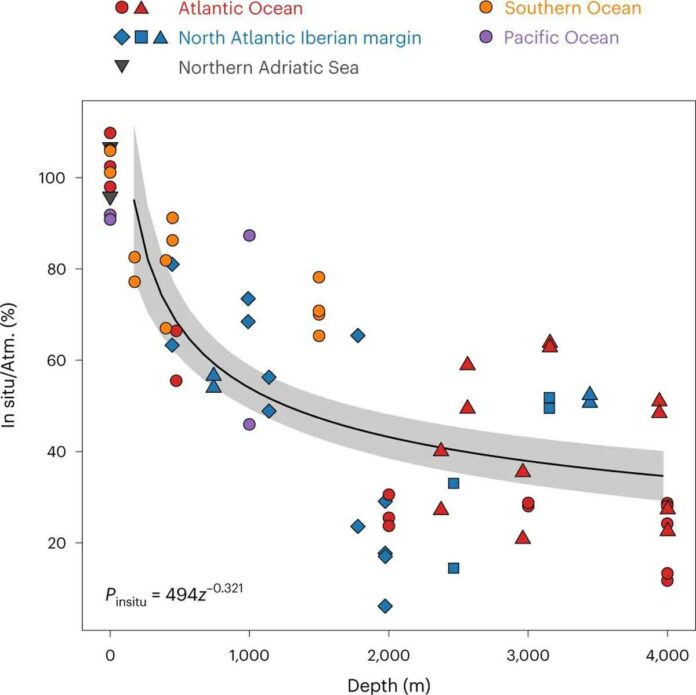A team of researchers from the University of Vienna discovered that the vast majority of deep-water microbes are mostly dormant. The study was published in the journal Nature Geoscience. The researchers described their long-term study of microbes at great depths in the Atlantic, Pacific and Mediterranean oceans.
For many years, ocean scientists assumed that the world’s oceans were teeming with microbes that would consume anything that died in them. This theory has been discovered to be true. But it is not true in the ways that were previously thought.
Previous research has suggested that at least some parts of the deep ocean are devoid of microbes or are home to microbes that do not consume biomatter. The underwater ecosystem is clearly diverse. There some areas are more suited to biomolecular breakdown than others.
Researchers also speculated that certain types of seaweed could extract carbon from the atmosphere. But that does not appear to be the case. Because the new evidence suggests that microbes in the ocean are not uniform.
The researchers sailed around the world collecting samples to learn more about microbes in the deep oceans. But instead of hoisting them aboard their ship, the researchers used fluorescent probes. They also drew a few different types of microbes into their boat to conduct genetic research.
The researchers examined their data and they were surprised to discover that only 3% of the microbes they studied were converting oxygen to CO2. The rest were mostly inactive. They also discovered that greenhouse gas emissions that end up in the ocean are very unevenly distributed. It implies that using the oceans to store more CO2 is currently impractical. It also demonstrates that ocean scientists still have a poor understanding of ocean chemistry.
More information: Chie Amano et al, Limited carbon cycling due to high-pressure effects on the deep-sea microbiome, Nature Geoscience (2022). DOI: 10.1038/s41561-022-01081-3

